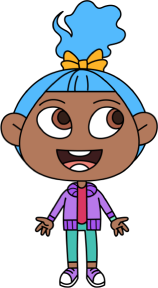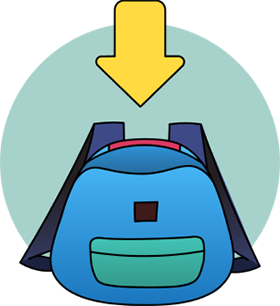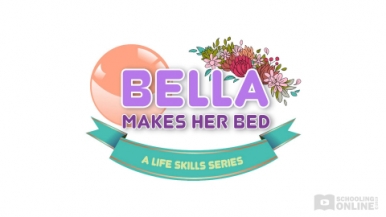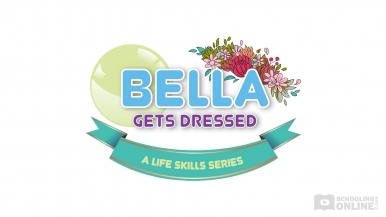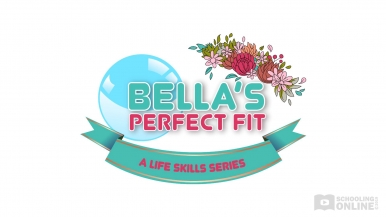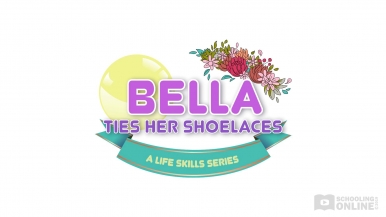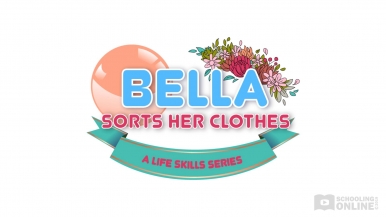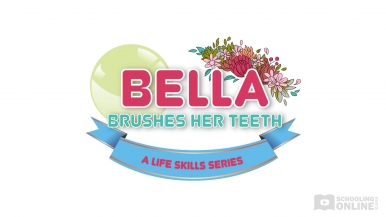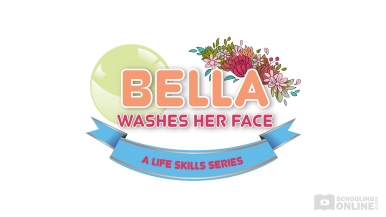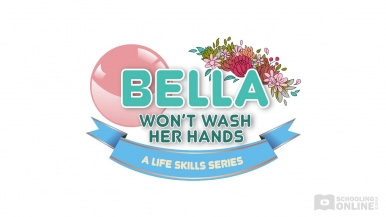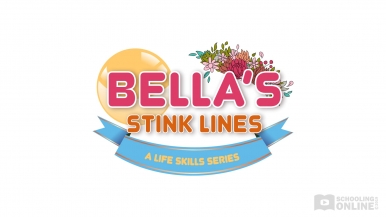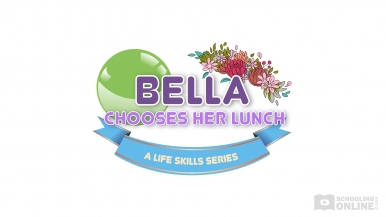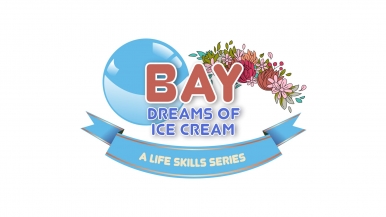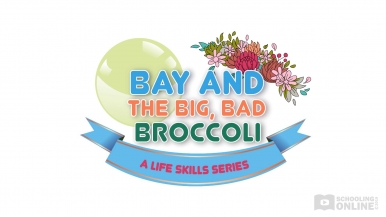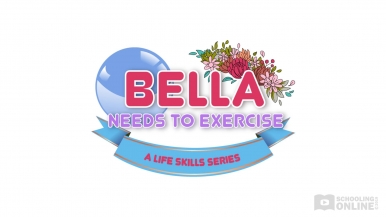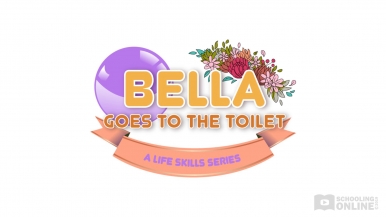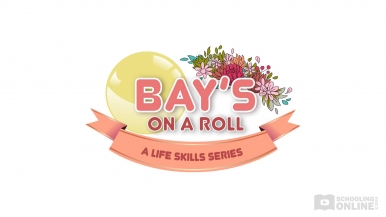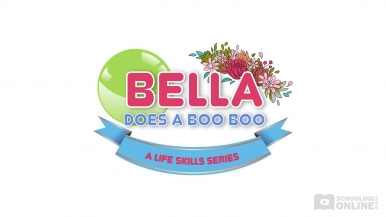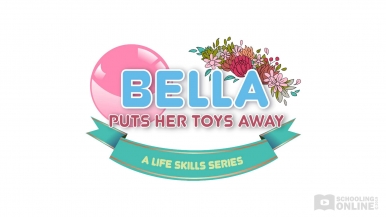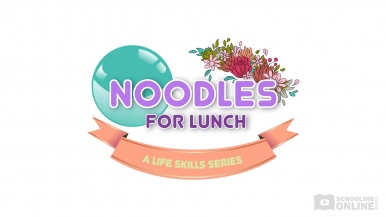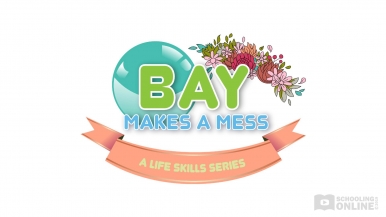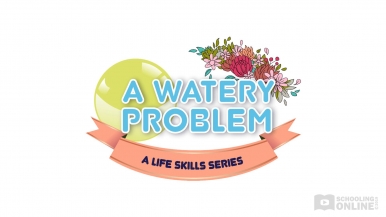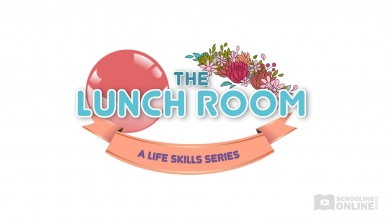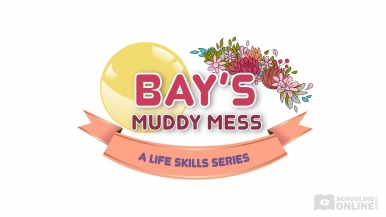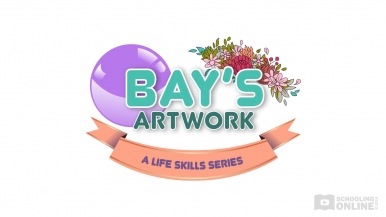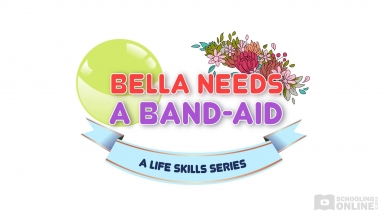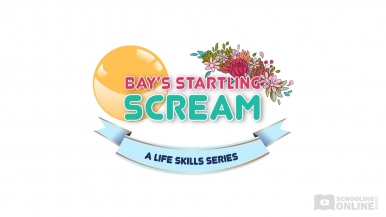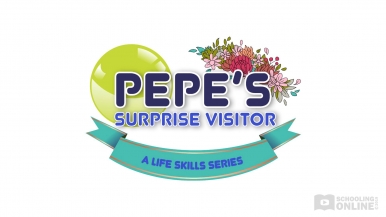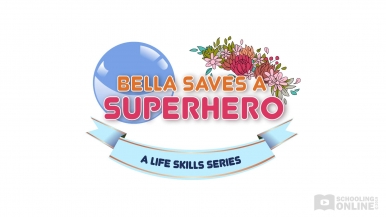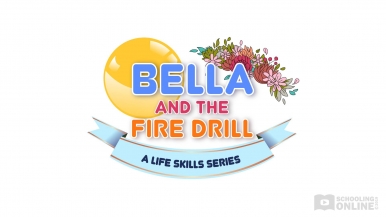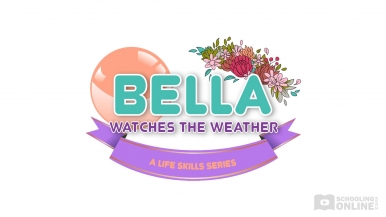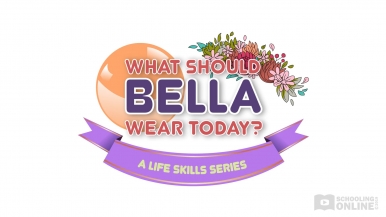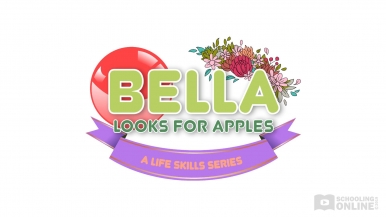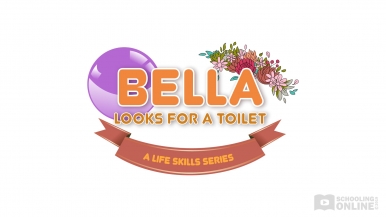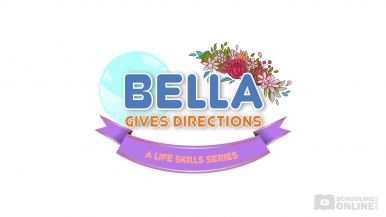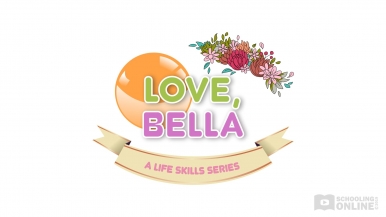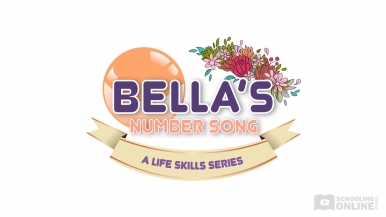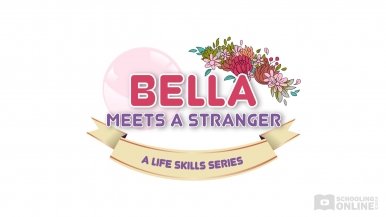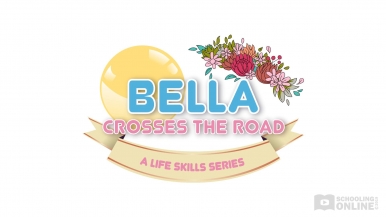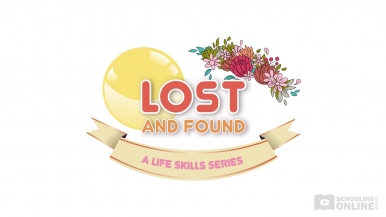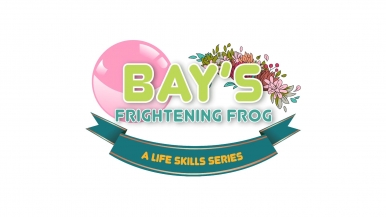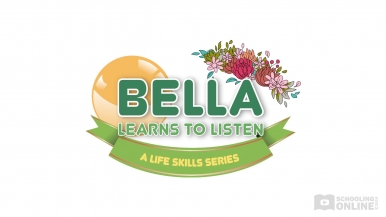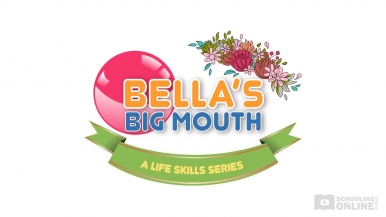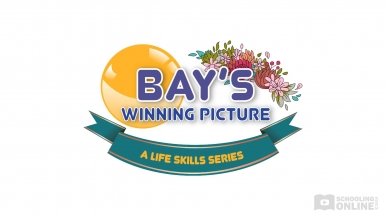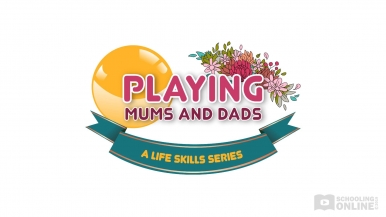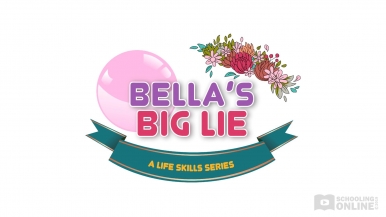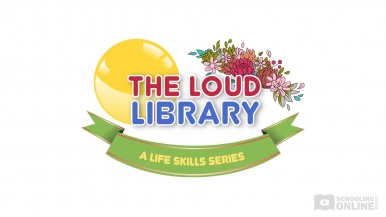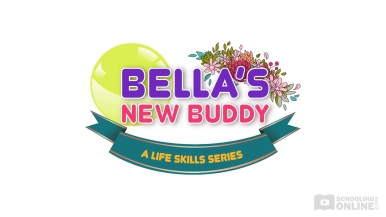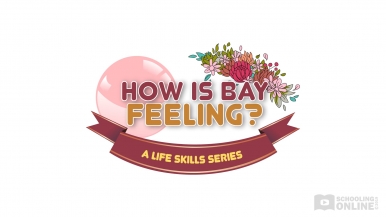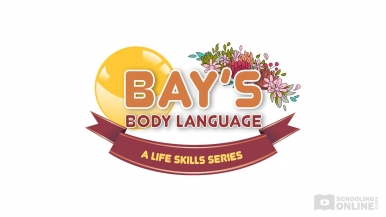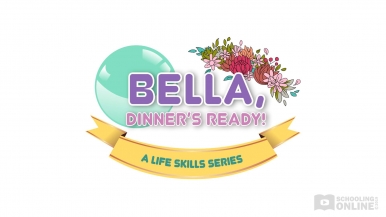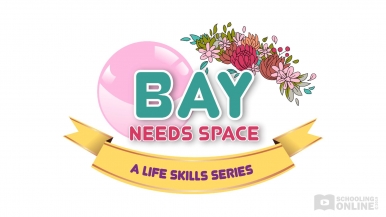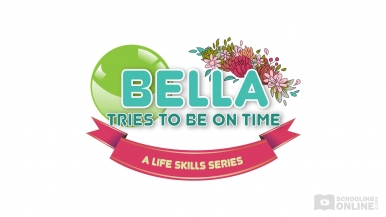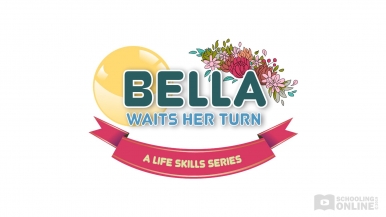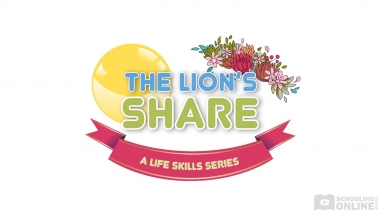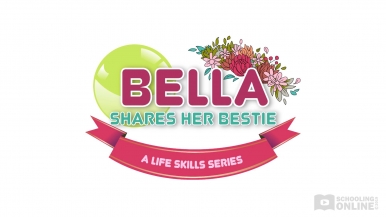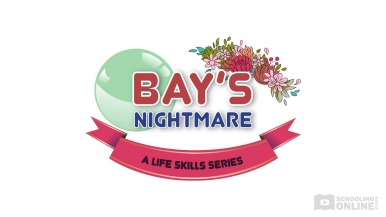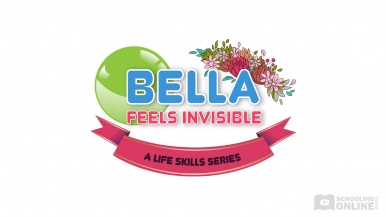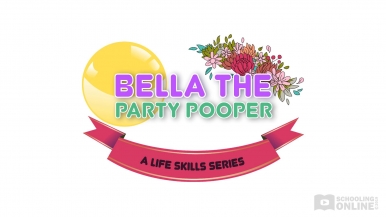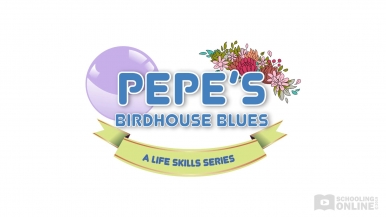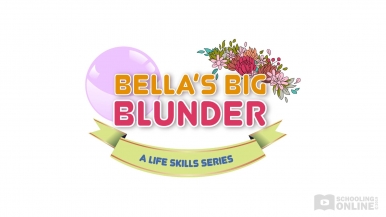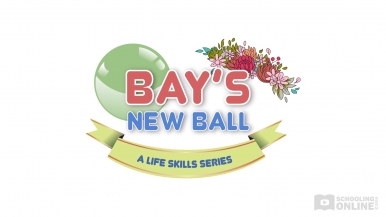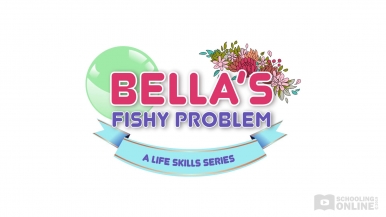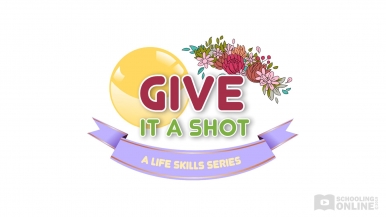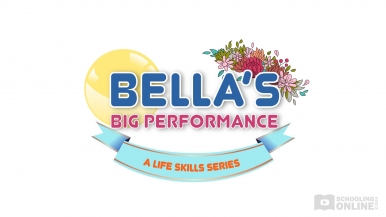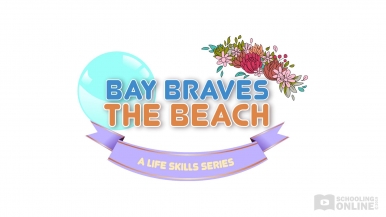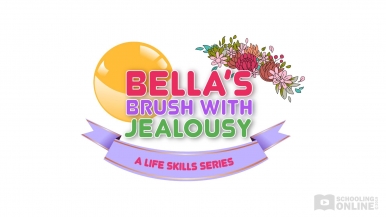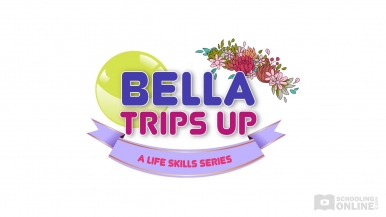A Life Skills Series helps children to cope with the demands and challenges of everyday life. At Schooling Online, we believe that education is about more than just learning to read, write and count. A holistic education should nurture children’s practical skills and personal qualities.
A Life Skills Series develops ten essential life skills outlined by the World Health Organisation. Each video focuses on one complementary pair of life skills, ranging from tangible to intangible skills.
Decision making and problem solving: children learn how to identify a problem, evaluate the advantages and disadvantages of four potential solutions and choose a final solution.
Creative thinking and critical thinking: children learn how to identify a problem, brainstorm potential solutions, constructively criticise each other’s views and choose a final solution.
Effective communication and interpersonal relationship skills: children learn how to identify a thought or feeling that they want to express, evaluate four potential ways of expressing that thought or feeling and choose a final solution.
Self-awareness and empathy: children learn how to deal with interpersonal conflict by considering how others feel, evaluating four potential solutions and choosing a final solution.
Coping with emotions and stress: children learn how to deal with a negative emotion by seeking or receiving support from others, evaluating four potential ways of coping with the emotion and choosing a final solution.
All the stories are scenario-based, so children learn how to apply these life skills in a variety of contexts. The series is separated into four categories to show children how to:
- Take care of themselves at home
- Take care of themselves outside the home
- Interact with others
- Go into the world
We encourage parents and educators to integrate our online lessons into children’s learning and play experiences. Here are some tips for using our lessons:
1. Integrate our videos into your centre’s curriculum
We aim to facilitate flexible curriculum planning that is tailored to each early learning centre’s needs. Educators can integrate our videos into their weekly, monthly and yearly lesson plans at their centre. Our lessons address key learning outcomes described in the Early Years Learning Framework for Australia (EYLF). For each video, we have listed the relevant EYLF outcomes in the lesson description. Educators can use this information to develop a high-quality learning program.
Parents should also refer to the EYLF outcomes listed in our lesson descriptions if they are planning their children’s lessons at home.
2. Show our interactive videos at home and in your early learning centre
Parents and educators can show our interactive videos to promote social learning and collaborative decision making. Each story focuses on an everyday problem, such as making a bed or packing up toys. Our videos guide children through different stages of problem solving and decision making, including:
- Identifying the characters’ problem
- Evaluating four potential solutions, as summarised in four simple images
- Sharing their views with others, including peers, parents and educators
- Choosing a final option and justifying their decisions
Parents and educators will have several opportunities to pause the video and discuss the situation with children. They can follow the aural and visual cues included in every lesson. Initially, children should discuss the four options without any clues from the story. At this point, parents and educators should encourage children to justify their choices.
Eventually, the characters in the story will evaluate each potential solution. Parents and educators are advised to explain the characters’ thought processes, which model key life skills. Afterwards, children should reconsider their original choices. The final decision will be revealed at the end of each story.
3. Complete the comprehension questions to build literacy skills
At Schooling Online, we want children to be active learners. Each lesson includes eight additional multiple-choice questions, so children can deepen their understanding. These questions cover eight comprehension strategies to develop a child’s literacy skills. The strategies include:
- Finding the main idea
- Identifying the problem
- Finding a solution
- Critical thinking
- Recalling facts and details
- Understanding the sequence of events
- Recognising cause and effect
- Drawing conclusions and making inferences
We recommend that children move onto the comprehension questions after watching the story at least once. Children can complete the comprehension questions on their own or with help from an adult.
Each question is read out loud and can be replayed by pressing the speaker button. Once children understand the question, they can go through the four options. Each option is presented as a clickable image. Children can click the image to hear the option read out loud. To choose an answer, children must drag one or two images onto a specific part of the screen. This encourages children to choose their answers carefully, while training their fine motor skills.
If children choose the correct answer, they will immediately move onto the next question. If a child chooses an incorrect answer, then they will be prompted to try again.
4. Play the educational games
Children can play the educational games in their early learning centres or at home. All the games are appropriate for independent play.
Schooling Online’s educational platform facilitates the integrated development of juvenile cognitive, sensory and motor systems. The educational games engage children in increasingly complex fine motor skills and movement patterns.
Some games, such as the memory game, enhance a child’s cognitive ability. Other games, which might involve collecting items, improve children’s fine motor skills.
5. Follow the Arts and Crafts videos
Our stories also facilitate play-based learning at home and in early learning centres. Each lesson includes three Arts and Crafts videos that teach children how to paint, make, recycle and draw in creative ways.
The Arts and Crafts videos can be viewed immediately after the story or later as stand-alone resources. Parents and educators can click the shopping icon so they know what materials will be needed. We recommend that parents and educators watch each Arts and Crafts video with children before diving into the project. The videos are easy to follow and can be replayed in sections. That way, children will have constant guidance as they carry out the instructions.
6. Establish a daily routine
Parents and educators are encouraged to show our videos on a regular basis. This will allow children to learn and apply the life skills at a gradual pace. Sitting down and watching a story together could become your child’s favourite part of the day!
We recommend watching the videos in the order listed, starting with our lessons about taking care of themselves at home. We know that parents and educators may need a specific video to meet their immediate needs. In this case, feel free to browse the story titles to find the relevant video. For example, parents can show the video “Bella Brushes her Teeth” before teaching their child about dental hygiene.
Some skills may be more challenging for your child to learn. Feel free to watch our videos again to revisit the different concepts.
